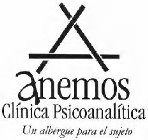
EDUCATION IN POSTHUMANITY
In these times, what does mean to educate?
In these times, what does mean to educate?
By
Camilo E. Ramírez-Garza
Camilo E. Ramírez-Garza
As Freud said, education is one of the imposibles; the other two are, to govern and to psychoanalyze. In spite of being impossible we did not resign to any of the three.
Nowadays education has become, like any other topic in our post-human society, more business than education in its fundamental meaning: requiring a lot of certifications, qualified programs for professors and members of the administration staff, standardized evaluations, goals, the human rights etc. What really means in these times, to educate? Why go to school in these times?
Therefore, their effects are: we have education but without its substance (like Slavoj Zizek has said about others objects, like alcohol, war, sex, coffee… all the decaffeinated life) we have students and teachers, working together -in vain- just in order to conclude the programs, to fill the standards that the protocols of the school system requires.
This situation is possible, at least by three elements: 1) the pure technological illusion, which refers, what students, teachers, educational and political authorities believe (in order to guarantee all the educational goals) all we need is more technology: computers, multi interactive-media, more network systems, and other technology platforms. 2) Standarized programs and evaluations that are separating knowledge from wisdom; this explains why there are a lot of students specialized in how to do, instead of, how and why to become like, we have a lot of information and a little purpose and professors that just repeat the tasks that supra-educational system (computers, laws of education, protocols and evaluation criteria) give them. 3) The illusion that knowledge is separated from political and economical power (see M. Foucault, Truth and Judicial form)
So, in these terms we just have buildings that we have called schools, institutes, universities, etc. We have education, without education, we just have the copy-paste effect in the students work, without reflection and debate, there is a great deficiency of dialogue and authority. It seams like new education is becoming more statistical, pure quantifications of knowledge.
Is there any relation between this operational educative reality with the school shootings (to be listened with bullets) the bullying phenomena, one kind of sadistic and masochism relationships in school, one kind of (possible) love, the proliferation of drug treatments for those problems considered just as “behavioral problems” an apparently “easy” way to correct the “errors”?
The questions are open…
Nowadays education has become, like any other topic in our post-human society, more business than education in its fundamental meaning: requiring a lot of certifications, qualified programs for professors and members of the administration staff, standardized evaluations, goals, the human rights etc. What really means in these times, to educate? Why go to school in these times?
Therefore, their effects are: we have education but without its substance (like Slavoj Zizek has said about others objects, like alcohol, war, sex, coffee… all the decaffeinated life) we have students and teachers, working together -in vain- just in order to conclude the programs, to fill the standards that the protocols of the school system requires.
This situation is possible, at least by three elements: 1) the pure technological illusion, which refers, what students, teachers, educational and political authorities believe (in order to guarantee all the educational goals) all we need is more technology: computers, multi interactive-media, more network systems, and other technology platforms. 2) Standarized programs and evaluations that are separating knowledge from wisdom; this explains why there are a lot of students specialized in how to do, instead of, how and why to become like, we have a lot of information and a little purpose and professors that just repeat the tasks that supra-educational system (computers, laws of education, protocols and evaluation criteria) give them. 3) The illusion that knowledge is separated from political and economical power (see M. Foucault, Truth and Judicial form)
So, in these terms we just have buildings that we have called schools, institutes, universities, etc. We have education, without education, we just have the copy-paste effect in the students work, without reflection and debate, there is a great deficiency of dialogue and authority. It seams like new education is becoming more statistical, pure quantifications of knowledge.
Is there any relation between this operational educative reality with the school shootings (to be listened with bullets) the bullying phenomena, one kind of sadistic and masochism relationships in school, one kind of (possible) love, the proliferation of drug treatments for those problems considered just as “behavioral problems” an apparently “easy” way to correct the “errors”?
The questions are open…
camilormz@gmail.com
The author is a psychoanalyst and professor at The School of Psychology in Universidad Autónoma de Nuevo León, in Monterrey, México. He is also student of doctoral program in Arts and Humanities at Instituto de Comunicación, Artes y Humanidades de Monterrey (ICAHM)







1 comment:
Y esque de pronto la escuela se volvió en un lugar en donde te "certifican" y te pegan una etiqueta del iso 9000, listo para ponerte en un gran estante del apartado "desempleados" ...
Post a Comment